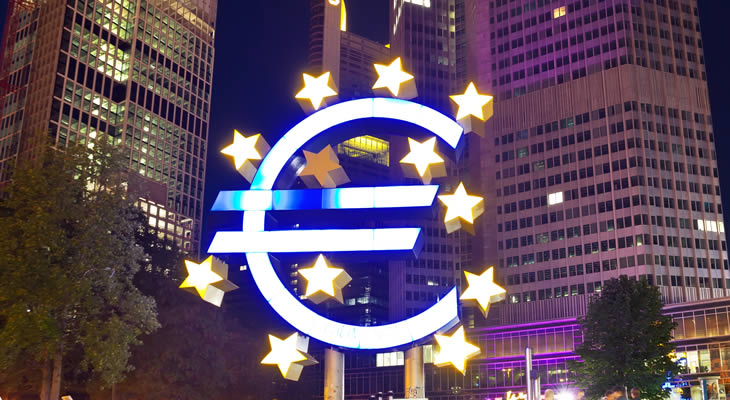Updated 16:42 BST 5/09/2017:
GBP EUR Hits Two-Week-High
Investors bought up the Pound to Euro exchange rate for most of Tuesday’s European session.
Despite speculation that the European Central Bank (ECB) wasn’t hugely bothered by the Euro’s recent strength, investors sold the shared currency from its highs.
While the long-term Euro outlook remains strong, the shared currency has been weighed down by August’s slightly underwhelming Eurozone PMIs too.
Meanwhile, Pound demand improved as it emerged that Norway’s sovereign wealth fund had upgraded its target for Sterling bonds.
[Previously updated 12:55 BST 5/09/2017]
The GBP EUR exchange rate recovered from its Monday lows on Tuesday morning, as investors reacted to the day’s mixed ecostats and European Central Bank (ECB) jitters persisted.
Britain’s services and composite PMIs fell short of expectations, which disappointed Pound traders.
However, markets are hesitant to sell the already undervalued Pound much more.
Markit’s final August PMIs for the Eurozone also disappointed slightly, with services and composite prints falling short of projections. On top of this, July’s Eurozone retail sales figures contracted more than expected month-on-month.
[Previously updated 16:42 BST 4/09/2017]
The Pound to Euro exchange rate saw mixed movement during Monday’s European session, but overall had fallen from the week’s opening levels.
Demand for safe and reliable currencies amid new North Korea concerns appears to have bolstered demand for the Euro.,
The latest Eurozone ecostats were mixed. Spain’s August consumer confidence results improved, but the unemployment change figure worsened. These stats had little impact on GBP EUR.
[Published 10:37 BST 4/09/2017]
When markets closed on Friday evening, the GBP EUR exchange rate was trending near its best levels in over a week – 1.0925. While some domestic data has supported Sterling, the main reason for Pound Euro strength has been uncertainty about the upcoming European Central Bank (ECB) meeting.
GBP EUR dropped from its highs when markets opened on Monday morning.
Pound (GBP) Investors Anticipate Services Report
Sterling became slightly more appealing in recent sessions as investors reacted to some better-than-expected ecostats from July and August.
July’s UK mortgage approval, mortgage lending and Bank of England (BoE) consumer credit reports all beat expectations, as did GfK’s August consumer confidence survey and Markit’s August manufacturing PMI.
However, Markit’s August construction PMI came in today and the results were disappointing, leaving GBP EUR dropping again.
Construction was forecast to have improved slightly, from 51.9 to 52, but only came in at 51.1. This was the print’s lowest level in a year and was worryingly close to 50 – the point marking stagnation.
According to Markit’s report, the biggest reasons for the sector’s August weakness were concerns about Britain’s economy. Many clients have been delaying or scaling back projects due to uncertainty about the economic outlook.
Some analysts argued that the Brexit process is to blame, as uncertainty about how the process will effect Britain’s economy in the long-term builds.
While Sterling weakened on Monday, it remains relatively close to its 2017 lows so further losses may be limited.
However, markets are now highly anticipating Britain’s August services PMI, which is due tomorrow. If it weakens like construction did, the Pound could shed more of its recent recovery.
July’s UK trade deficit update, due later in the week, could also inspire Sterling movement. Overall though, this week’s upcoming Eurozone news will have the biggest influence on the mid to long-term GBP EUR outlook.
Euro (EUR) Outlook Depends on European Central Bank (ECB) Decision
Recent Eurozone data has had little notable effect on the Euro outlook, as investors focus on European Central Bank (ECB) speculation.
The shared currency’s persistent strength briefly paused at the end of last week due to uncertainty about the bank, which will hold its September policy decision this upcoming Thursday.
Previously, economists speculated that the ECB could announce its plans for quantitative easing (QE) adjustment as soon as September. However, due to the recent strength of the Euro, uncertainty has risen.
Many analysts now suggest that the ECB will make comments on the Euro’s strength during this week’s meeting and will not announce its QE plans until October.
If the ECB indicates on Thursday that it is closer to making a decision on QE and resists mentioning the Euro’s strength, it’s likely GBP EUR will fall again as the Euro becomes even more appealing.
On the other hand, if the bank issues fresh warnings on the Euro’s strength or shows any signs of dovishness, GBP EUR could recover again.
Markets overall generally expect that the ECB is more likely to begin tapering QE in the coming year rather than extending the program.
As a result of this and persistent Brexit concerns, most analysts predict the Pound Euro exchange rate will continue to weaken in the long-term.
Key upcoming Eurozone ecostats, such as retail sales and growth figures, could also influence Euro trade this week.
GBP EUR Interbank Rate
At the time of writing this article, the GBP EUR exchange rate trended in the region of 1.0865. The Euro to Pound exchange rate traded at around 0.9200.


Comments are closed.